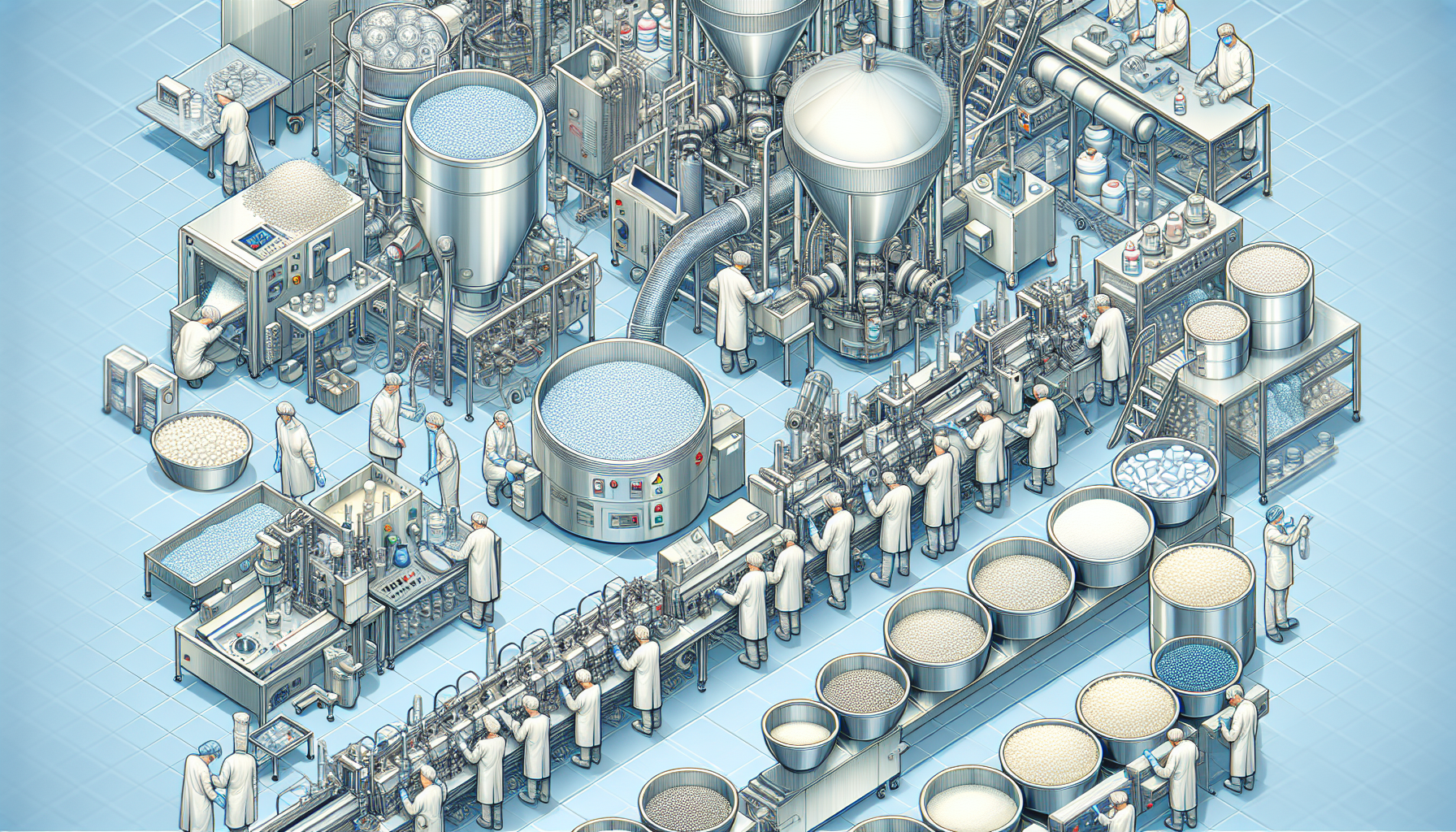When it comes to medications, efficacy and safety are paramount. However, the role of active pharmaceutical ingredients (APIs) is only part of the story. Excipients play a critical, yet often underappreciated, role in the manufacturing and functionality of medications. These inert substances are incorporated into a drug formulation to aid in the processing of the drug into its final form, to protect, support or enhance stability, or to aid in the drug’s deliverability and absorption. In this comprehensive article, we will delve into the multifaceted world of excipients, their purposes, types, and the regulatory standards governing their use.
What are Excipients?
Excipients are inactive substances used as carriers for the active ingredients in medications. These can range from fillers and binders to preservatives, flavorings, and coatings. Unlike active ingredients that are intended to have pharmacological effects, excipients are typically non-medicinal components. Yet, without them, many drugs would be unpalatable, less stable, and potentially less effective.
The Functions of Excipients
Excipients serve multiple functions in pharmaceutical formulations, including:
- Facilitating Drug Absorption: Some excipients can enhance the solubility or bioavailability of a drug, making it easier for the body to absorb the active ingredient.
- Ensuring Stability: Antioxidants and preservatives are excipients that help extend a medication’s shelf life by preventing degradation.
- Improving Patient Experience: Flavorings and sweeteners are added to make medicines more palatable, especially for children.
- Aiding in Drug Identification: Colorants enable easy identification of medications and help to distinguish between different doses of the same medication.
For a deeper look into the impact of excipients on health, consider the effects on Digestive Health, where the choice of excipient can influence gut health and nutrient absorption.
Types of Excipients
There are numerous types of excipients, each with a specific role in drug formulation:
- Binders help to agglomerate and hold the ingredients together.
- Disintegrants ensure that the tablet breaks down appropriately in the body.
- Lubricants aid in tablet manufacturing by preventing sticking to equipment.
- Fillers add volume to formulations with potent active ingredients but insufficient bulk.
- Coatings are applied to tablets for reasons ranging from protection against stomach acid to controlled release of the active ingredient.
The Safety and Regulation of Excipients
The safety of excipients is of utmost concern, and their use is heavily regulated. Regulatory bodies such as the U.S. Food and Drug Administration (FDA) and the European Medicines Agency (EMA) have stringent guidelines for the approval of excipients. They must be generally recognized as safe (GRAS) for their intended use at the specified levels. Manufacturers must provide comprehensive data demonstrating the safety and efficacy of their products, including the excipients used.
For an understanding of the evolving standards of medication and supplement production, one can read about the Advancements in Personalized Supplement Formulations, which also rely heavily on the use of safe and effective excipients.
The Role of Excipients in Drug Delivery Systems
The innovation in drug delivery systems has been significantly influenced by the development of new excipients. These advancements have allowed for the creation of sustained-release formulations, where the drug is released over an extended period, or targeted delivery systems that direct the drug to a specific part of the body. Excipients are integral to these systems, as they can control the rate at which the drug is released and ensure it reaches the intended site of action.
Understanding the Innovations in Drug Delivery Systems and Their Impact on Patient Care can provide greater insight into how excipients contribute to patient outcomes.
Excipients and Personalized Medicine
The personalization of medicine, including pharmacogenetics, has begun to highlight the importance of excipients. As medications become more tailored to individual genetic profiles, the role of excipients in ensuring the precise delivery and effectiveness of these personalized medications becomes more crucial.
Further exploration of this topic can be found in the article on The Role of Pharmacogenetics in Personalized Medicine, which discusses how excipients interact with individual genetic variations.
Challenges and Considerations
While excipients are largely safe and beneficial, there are challenges and considerations that must be addressed:
- Allergies and Sensitivities: Some individuals may have allergies or sensitivities to certain excipients, which can lead to adverse reactions.
- Interactions with Active Ingredients: Excipients must be carefully chosen to avoid interactions that could affect the drug’s efficacy.
- Regulatory Hurdles: The approval process for new excipients can be lengthy and expensive, potentially slowing down drug development.
To support these points, resources such as The International Pharmaceutical Excipients Council provide detailed guidelines and standards for the use of excipients in pharmaceuticals.
Future Directions
The field of excipient technology is continuously evolving. The development of novel excipients that can improve drug delivery and patient compliance is a key area of research. Additionally, there is a growing trend toward natural and plant-based excipients as the demand for ‘clean label’ pharmaceuticals increases.
For cutting-edge information on excipient innovation, organizations like The Controlled Release Society offer resources on the latest research and developments in drug delivery technologies.
Conclusion
Excipients are the unsung heroes of the pharmaceutical world. Their proper selection, formulation, and regulation are fundamental to the safety and effectiveness of medications. As we advance, the role of excipients in drug development is set to grow, particularly in the realm of personalized medicine and advanced drug delivery systems. It’s important for healthcare professionals, patients, and consumers to understand the essential role that these substances play in the medications we rely on every day.
For more in-depth health information and the latest on medication and supplements, visit Avix Health.



